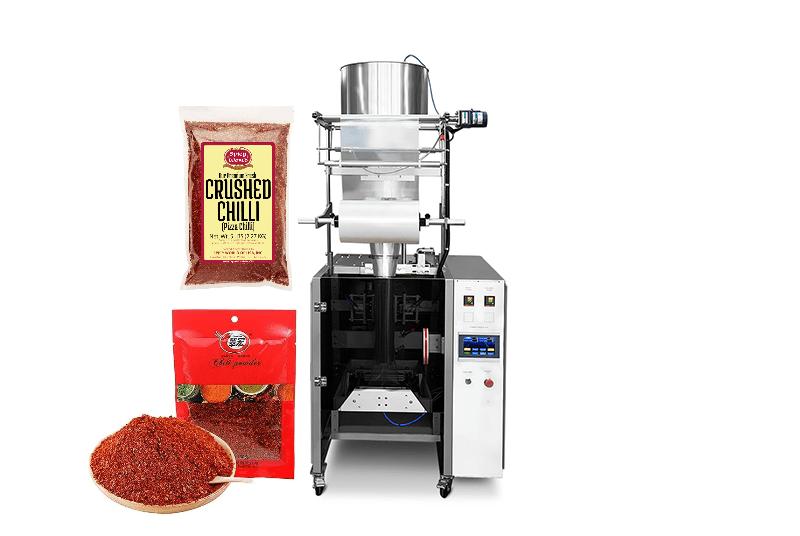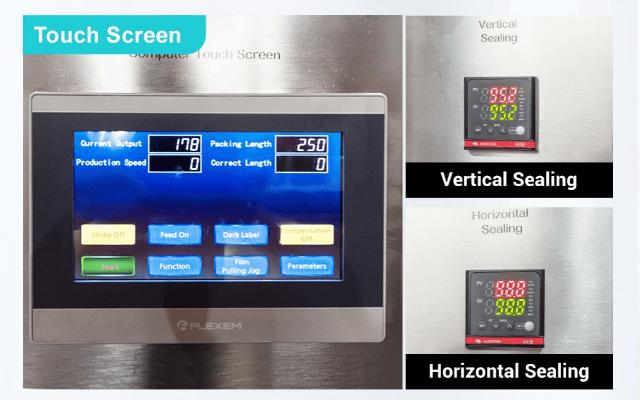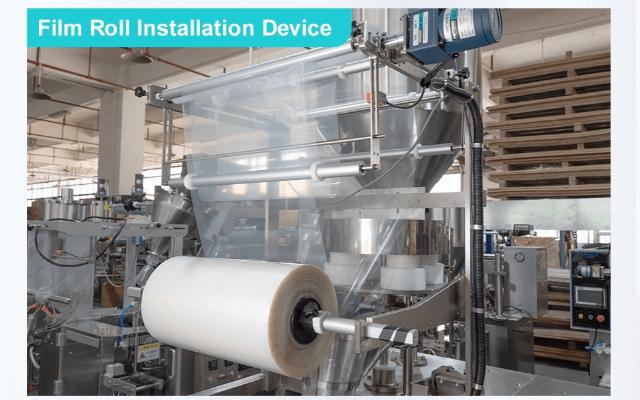Author:YISEN Pouch Packing Machine Manufacturer TIME:2025-03-05
When selecting a granule food packaging machine, it's essential for businesses in the food industry to consider multiple factors to ensure the product's quality, packaging efficiency, and regulatory compliance. The right packing machine can streamline your packaging process, enhance your product's appeal, and maintain safety standards. In this article, we'll dive deep into the key factors to consider when selecting the ideal machine for your granule food products.

Granule food products can range from snacks and cereals to pet food and spices. The characteristics of your specific product—such as size, texture, moisture content, and granule consistency—greatly influence the choice of packaging machine. Understanding these characteristics is key to selecting a machine that preserves the freshness and integrity of the product while optimizing packaging efficiency.
There are various types of packaging machines designed specifically for granule food products. Choosing the right type depends on your product's characteristics, production volume, and packaging preferences.
VFFS machines are ideal for packaging lightweight and flowable granules like cereals and snacks. These machines form bags from a roll of film, fill them with product, and seal the bags—all in one continuous process.
For products that require a horizontal motion (such as larger granules), horizontal flow wrappers can be a better option. These machines are perfect for products like granola bars or multi-serve packaging.
For applications that require accuracy in filling granules (especially powders or very fine granules), auger fillers provide precise measurements. This is important for products like spices or granulated sugars.
One of the most important factors in selecting a granule food packaging machine is its production capacity and speed. Choose a machine that can handle your current production volume while allowing for future scalability.
Not all packaging machines are designed to handle the same speed. If your business is small, a high-speed machine may not be necessary. However, for larger operations, investing in a high-speed machine can reduce bottlenecks and increase overall efficiency.
Another key factor is the machine's downtime for maintenance and changeover between different products or packaging formats. Machines that offer quick and easy changeovers can significantly improve operational efficiency.

Machine size and the footprint it occupies in your facility are critical considerations. Ensure that your facility can accommodate the new packaging system and that the layout aligns with your production process.
Compact machines are ideal for businesses with limited floor space, ensuring that they don't compromise on efficiency while taking up less room.
For larger facilities, larger machines with additional components may be needed. In such cases, ensure that the new packaging machine integrates smoothly with existing systems to maintain workflow efficiency.
Choosing a user-friendly and easy-to-maintain granule food packaging machine can improve productivity and reduce downtime. Automated machines with intuitive controls can streamline operations and reduce the training required for staff.
Look for machines with intuitive interfaces and automated settings, which can drastically reduce human error and training time.
A machine with high reliability and low maintenance costs will keep your operational expenses in check. Look for models with accessible parts and fewer service requirements.
Granule food packaging machines must work seamlessly with various types of packaging materials, including plastic, foil, and biodegradable options.
Whether you are using plastic film, biodegradable packaging, or laminated foil, ensure the machine can handle the materials you plan to use. The material type will affect the sealing process, so compatibility is key for maintaining packaging integrity.
For businesses looking to create customized packaging solutions (e.g., branded or eco-friendly packaging), choose a machine that offers flexibility in terms of packaging design and material compatibility.

The food packaging industry is highly regulated, and food safety standards must be met to ensure product quality and consumer trust. Make sure your granule food packaging machine complies with all relevant food safety regulations and certifications.
Machines designed for food packaging should adhere to strict hygiene standards. Look for equipment that can be easily cleaned and sanitized to avoid contamination.
Ensure the machine can handle labeling and packaging in line with regulatory standards, including ingredient lists, expiration dates, and nutritional information.
The initial price of the granule food packaging machine is only one part of the equation. Consider the total cost of ownership, which includes maintenance costs, energy consumption, and any additional operational expenses.
While it’s tempting to opt for cheaper machines, higher-quality machines may offer long-term savings by being more efficient and requiring less maintenance.
To assess the ROI, consider factors such as improved productivity, reduced downtime, and enhanced packaging quality. A slightly higher upfront investment can often result in greater savings over time.
A reputable supplier can make all the difference in ensuring that your granule food packaging machine performs optimally over time. Look for suppliers who offer strong after-sales support and reliable warranties.
Choose a supplier that provides excellent customer service, quick response times, and readily available spare parts to reduce downtime.
Research the reputation of potential suppliers. Reading customer reviews and asking for testimonials can provide insight into the supplier's reliability and the quality of their machines.
Before making a final decision, request a demonstration or trial of the packaging machine to evaluate its performance under real production conditions.
During the demonstration, focus on aspects like the machine's filling accuracy, sealing quality, and its ability to handle your specific product types. This will help ensure that the machine meets your needs before you commit.
Selecting the right granule food packaging machine requires careful consideration of product characteristics, production needs, regulatory requirements, and budget constraints. By following the guidelines above, you can make an informed decision that improves both operational efficiency and product quality. A well-chosen packaging machine will not only streamline your packaging process but also enhance consumer satisfaction and support your business's growth in the competitive food market.